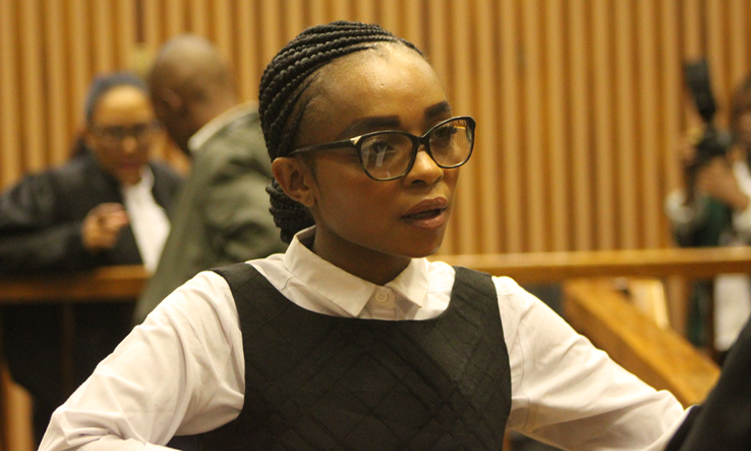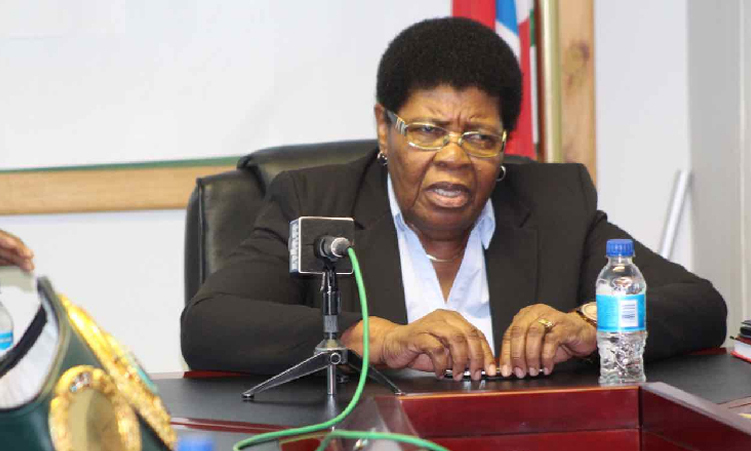Public expectations are not synonymous with public interest, a judge commented yesterday in the Windhoek High Court during the sentencing of two Walvis Bay siblings acquitted on a murder charge a month ago.
A travesty of justice would be the result if courts were to give in to public expectations when sentencing convicted persons, instead of considering how the public interest could be served best, judge Christie Liebenberg said before he sent siblings Azaan Madisia and Steven Mulundu both to prison on a charge of defeating or obstructing the course of justice.
Liebenberg sentenced Madisia (31) to an effective prison term of six years. Mulundu (25) received an effective jail term of four years.
Madisia and Mulundu were found not guilty of murdering the 21-year-old Shanon Wasserfall, who disappeared at Walvis Bay in April 2020, in a judgement delivered by Liebenberg a month ago.
Liebenberg convicted Madisia and Mulundu both on a charge of defeating or obstructing the course of justice, after they admitted that they tried to conceal Wasserfall’s death by burying her body in a shallow grave near Walvis Bay’s Dunes Mall.
Madisia was also found guilty on two counts of insurance fraud, on which she admitted guilt as well.
Wasserfall disappeared on 10 April 2020, after a visit to Madisia’s flat at Walvis Bay.
She was missing for six months before her skeletal remains were found on 6 October 2020, buried in a shallow grave near the harbour town’s Dunes Mall.
Madisia was arrested in connection with Wasserfall’s death the day after that discovery. Mulundu was arrested on the same charges a month later.
During their trial before Liebenberg, Madisia told the court Wasserfall had died accidentally in her flat, after she had hit her head against a wall when she fell over a bed. Madisia said Wasserfall fell after she (Madisia) had pushed her while the two of them were involved in a physical altercation.
In a judgement delivered on 16 May, Liebenberg acquitted both Madisia and Mulundu of murder, after finding that the state did not prove Madisia had an intention to kill Wasserfall when she pushed her. He also found that the evidence before him did not show Madisia should have foreseen the possibility that Wasserfall could be killed when she pushed her away from herself, adding that her actions could not be found to have been negligent either.
The cause of Wasserfall’s death could not be determined when her remains were examined after the discovery of the remains.

During the sentencing yesterday, Liebenberg noted that after the delivery of his judgement last month comments made by relatives of Wasserfall and members of the public were reported in the media, “undoubtedly for purposes of influencing the court at sentencing”.
He stated: “It should be made clear to all that, what is required of this court today is to punish the accused for the crimes they stand convicted of, based on the facts and law as set out in this court’s earlier judgement, and not for crimes society expected them to be guilty of.”
Liebenberg added: “For the courts to give in to public expectation, as opposed to considering how public interest could best be served, would result in a travesty of justice.”
The judge noted that Wasserfall’s family was emotionally tormented by her disappearance for six months and the undignified manner in which she had been buried, which he said he was taking into account when deciding the siblings’ sentences.
Liebenberg sentenced Madisia to eight years’ imprisonment, of which two years are suspended for a period of five years, on the charge of defeating or obstructing the course of justice.
Mulundu was sentenced to six years’ imprisonment on that count, with two years of his sentence also suspended for a period of five years.
On two charges of fraud involving false claims for insurance payouts, Madisia was sentenced to one-year prison terms, which were ordered to be served concurrently with the sentence imposed on the charge of defeating or obstructing the course of justice.
Madisia and Mulundu have both been held in custody since their arrests.
Legal aid lawyers Albert Titus and Tanya Klazen defended Madisia and Mulundu, respectively, during their trial.
The state was represented by deputy prosecutor general Henry Muhongo.
Stay informed with The Namibian – your source for credible journalism. Get in-depth reporting and opinions for
only N$85 a month. Invest in journalism, invest in democracy –
Subscribe Now!






